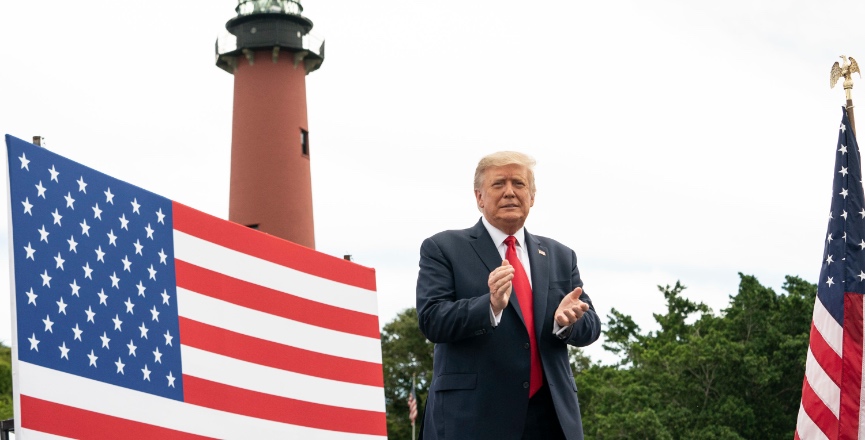I sort of get why Donald Trump is determined to run for re-election based on anti-Communism, even though, as Biden himself says, Do I look like a radical socialist? (Hal’vai, Bernie Sanders might reply. Would that it were so.) And although Cold War passions are unfamiliar to most U.S. voters under 40, young Americans now identify with socialism, not capitalism.
The reason is: Roy Cohn. Cohn was the closest thing McCarthyism, the 1950s anti-Communist hysteria, had to a brain. He was the lying, sadistic legal counsel to senator Joe McCarthy. When that frenzy diminished, Cohn went back to New York and spent decades as a corrupt, successful, eventually disbarred lawyer. He met young Trump, a developer, in the 1970s and became a mentor and idol. He taught lessons like, Never back Down, Always Attack. Trump, says Vanity Fair, even began mouthing Cohn phrases (“That I can tell you.”).
What I get less is why the U.S. president also intends to target anarchism, a term, unlike communism, that rings few bells for Americans. There aren’t many anarchists (though its authentic versions are highly plausible). They haven’t been into assassinations or bombings since their debate about political violence was settled over a century ago. Why not target terrorism instead; it’s loaded with familiar connections and easy, if misrepresented, foes like Antifa?
Absent a Cohnish link, I’m suggesting the source is Trump’s own psyche. He surely hasn’t read or talked to anarchists, but the lazy pop associations — chaos, disorganization, imminent disaster, destruction — sound like the man himself. They’re the qualities that have marked his career and presidency. He feels this menacing, comic book version of anarchism because he projects it.
The all-encompassing quality of Trump’s psyche isn’t a matter of dispute. Charges that he lacks empathy — that basically he doesn’t believe others really exist — mounted so high that much of the Republican convention was devoted to rebutting them.
A congressman said Trump “found a reservoir of empathy” for his relatives. Daughter Ivanka said, “I’ve seen the pain in his eyes” when he gets “updates” on COVID victims. “I just wish everyone would see the deep empathy” he shows families of violence victims, said another.
Then Trump spoke and blew up the whole calibrated strategy, declaring “laid-off workers … didn’t want Joe Biden’s hollow words of empathy.” He’s even oblivious to the flunkies trying to save him from his empathy vacuum. Empathy’s for wusses, whatever it is.
What Trump means by and fears in anarchism would probably be better described as nihilism. It’s a complicated and historically amorphous term. (Nietzsche wasn’t a nihilist but he thought it should be overcome with a new, harshly honest morality; the Russian nihilists wanted to dismantle their brutal world and replace it with the nobler qualities of peasants and the early church.)
But in Trump, the heavy metal, guitar-smashing caricature of nihilism finds a home. He may be the first pop nihilist ever among world leaders. There’s something touching in him saying to John Kelly, at a battlefield cemetery, that he doesn’t get it, what did they die for? What was in it for them? Kelly may’ve been tempted to pat him on the back and try futilely to explain it.
The grimmest story this week, IMO, was the discovery of a “cavity” 1,000-feet tall, almost the size of Manhattan, in an Antarctic glacier. It may well collapse. Yet it’s impossible to imagine Trump being concerned unless it buckled around his Mar-a-Lago resort while he was there.
It’s less that he doesn’t care than that he doesn’t know why anyone does. Other leaders ignore climate catastrophe but they know what’s at stake, so shame on them. Trump is oblivious, so he’s pathetic, and in his selfish stupor could take everyone down with him.
This is nihilism and lack of empathy, not in Bill Clinton’s shabby “I feel your pain” sense; but in the sense that there are worlds, literally, to lose, and he doesn’t know it. He’s less irresponsible than impenetrable. This is the challenge U.S. voters face in two months and it’s not about medicare-for-all any more, Toto. Will they be up to it? Personally, I’m optimistic but that’s another story.
Rick Salutin writes about current affairs and politics. This column was first published in the Toronto Star.
Image: Joyce N. Boghosian/The White House/Flickr



